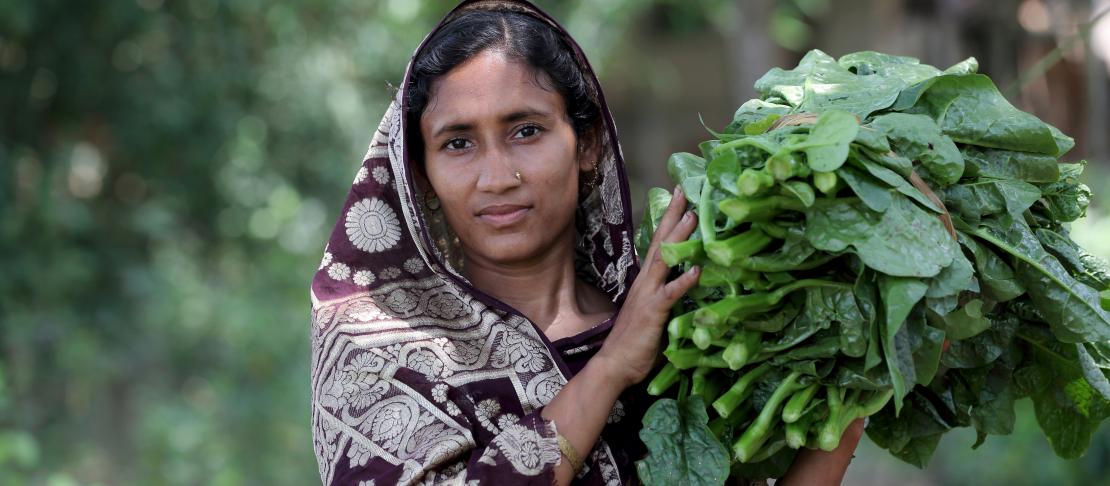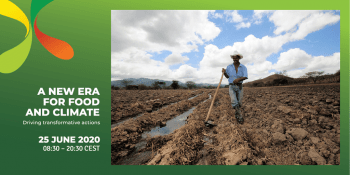What does it take to apply a gender-responsive approach to climate-smart agriculture?

What do practitioners need to know to apply a gender-responsive approach to climate-smart agriculture?
A new FAO-CCAFS practice brief, A Gender-responsive approach to Climate-Smart Agriculture: Evidence and guidance for practitioners, has some of the answers. The brief was developed under the Global Alliance for Climate-Smart Agriculture (GACSA) and is one of a series.
Focus of the brief
The brief calls for recognizing and addressing women’s and men’s needs, priorities, and realities in climate-smart agriculture (CSA) design and implementation to ensure they equally benefit. It focuses on CSA practices, but recognizes the need for a holistic gender-responsive approach at different levels (e.g. research and evidence-building; policy formulation; development of financial instruments, institutional change) to enhance the field of CSA.
Key messages
The practice brief shares three messages:
- The gender gap in agriculture affects how men and women access and benefit from CSA.
- A gender-responsive approach to CSA addresses this gap by recognizing the specific needs and capabilities of women and men.
- Site-specific CSA practices that are also gender-responsive can lead to improvements in the lives of smallholder farmers, fishers and foresters, as well as more sustainable results.
What does the brief provide?
A number of different issues are covered in the practice brief, including:
- Criteria for evaluating whether CSA-sensitive practices are following a gender-responsive approach.
- Challenges to adopting a gender-responsive approach.
- Gender-sensitive indicators of CSA performance.
- Case studies that have applied a gender-responsive approach to introducing CSA-sensitive practices.
To learn more about gender-responsive approaches to CSA, read the practice brief here.
Catherine Hill is the Gender and Social Inclusion Programme Manager at CCAFS.



